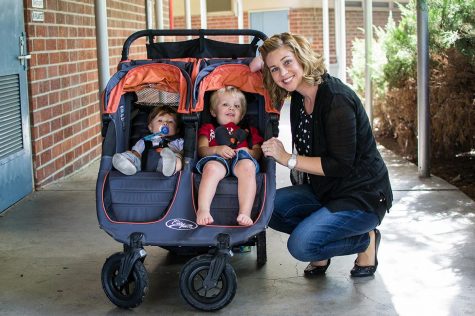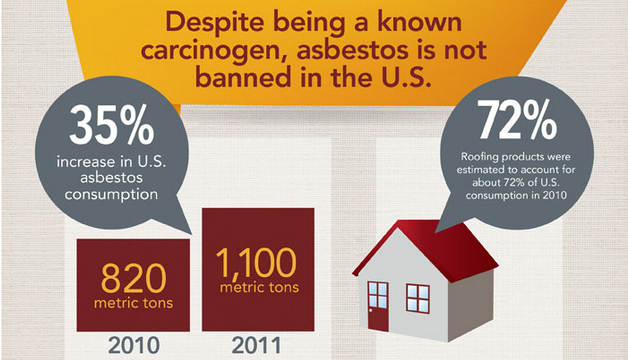On the first day of class, adjunct professor of journalism and integrated media Anna Sinclair apologized in advance for her repetitive wardrobe. The class giggled uncomfortably and soberly quieted down as Sinclair continued to share her story.
“Our worldly possessions fit in duffle bags,” she said.
Over the summer Sinclair, her husband Jereme and two young children Luke and Andy were forced from their new home in Huntington Beach after her father’s suspicion that the little white flecks speckling the carpet might be dangerous proved true. After carpet samples were taken, they came to a troubling and mysterious conclusion: their new home was poisoned with asbestos.
The family lived under the hospitality of her in-laws with not much more than the clothes on their backs. They were forced to move out of their home and throw out all soft items. Anything soft or porous had to go — clothes, blankets, shoes, mattresses, luggage, carpet, bags — all lost.
TESTING POSITIVE
“We all saw visible specks of white in the carpet, but none of us thought it was a problem,” Sinclair said regarding the first sign that the house might be affected by the toxic building material. After the carpet sample her father sent tested positive, all the carpet and the air underwent examination.
By May 24, they received the call that they needed to move out. A specialized asbestos abatement company completely cleaned out their home — hazmat suits and all. All of the affected materials were thrown into a five-ton bin and trucked to a landfill.
“Our house is probably the cleanest house on the planet now,” Sinclair said.
WHAT EXACTLY IS ASBESTOS?
Asbestos is a mineral fiber sometimes used in building materials, mainly for its insulating and fire resistant qualities, according to the U.S. Environmental Protection Agency. It can be found in schools, workplaces and homes, and natural asbestos can occur in water, soil and air.
The Sinclairs’ asbestos poisoning occured when the house-flipping company that sold them their home did not take proper precautions during renovations. Asbestos in the ceiling fell onto the carpet, infecting the entire house.

HUMILITY AND DISCOVERY
While the house underwent cleaning and restoration, Sinclair learned a great deal about herself and her family. The hospitality of her in-laws stood out as a source of hope.
“We were so thankful,” said Sinclair. “It was so hard because Andy was so little. It was a huge imposition for them but they were so gracious.”
She elaborated that God gave her peace and drove home the principle that material possessions do not hold as much importance as society gives them.
“It was really the body of Christ coming around us. Our in-laws, our friends from church. Everyone rallying around us … we all of a sudden had nothing,” said Sinclair. “People were giving us donations and hand-me-downs, being so generous. I wasn’t used to being the recipient of such charity and such love. It was uncomfortable for me to accept all the help and all the love, but really we needed it.”
REJUVENATED FAITH
Since Labor Day weekend 2014, the Sinclair family has finally been able to enjoy living in a new, asbestos-free home.
“The idea God won’t give you more than you can handle made me think, ‘God how could you think I could handle this?’ Then it became a little bit freeing, ‘God you think I can handle this,’” said Sinclair.
From there she believes you can ask God to help you make the right decisions in tough times and in prosperity.
“Whether it’s asbestos or a fire or some other kind of loss, even if it’s not material loss, if you’re dealing with just loss in general, keep in sight of what is truly most important. For us we lost all of our material items,” Sinclair said, “We still had the kids. We had our health. We were still together as a family. Keep the most important things most important. After that, the other things don’t seem as bad.”







